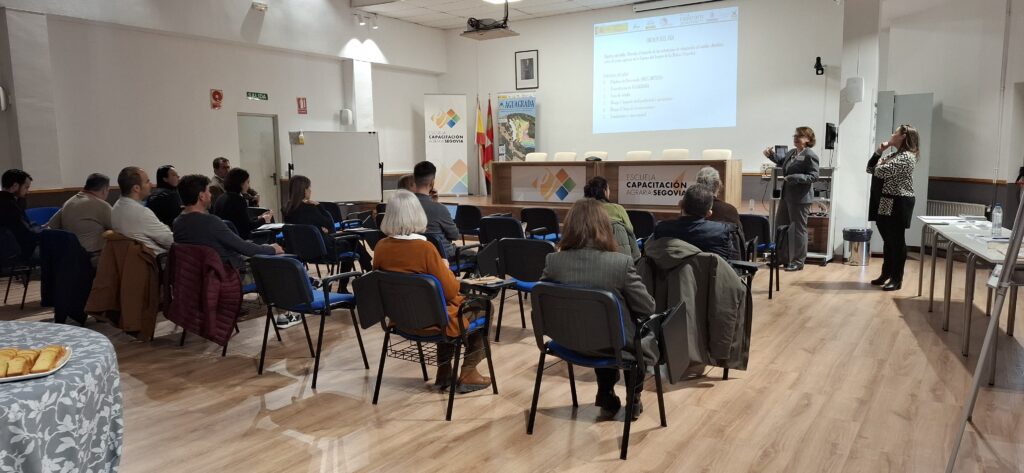On Friday 28 March, the Universidad Politécnica de Madrid’s AGUAGRADA research project organised its second and last participatory workshop in Segovia, where the impact of different agricultural practices for adapting to climate change on water demand, crop yields and different socio-economic aspects of the agricultural sector in the Arroyo Balisa basin was discussed.
The conference took place at the C.I.F.P. Escuela de Capacitación Agraria de Segovia, and brought together farmers, agricultural associations, companies, environmental organisations, representatives of the administration, technicians, experts and civil society.
During the workshop, the first results of the modelling of agricultural practices, selected by the local stakeholders themselves in the first project workshop, were presented. These practices were discussed in terms of their feasibility, their impact on water demand and the sustainability of agriculture in the area in the context of climate change.
To conclude, the problems identified in these practices and possible solutions that could facilitate their implementation, such as the improvement of legume varieties or the streamlining of administrative processes, were discussed in depth.

AGUAGRADA is a project led by the Centro de Estudios e Investigación para la Gestión de los Riesgos Agrarios y Medioambientales (CEIGRAM) of the Universidad Politécnica de Madrid, with the support of the Fundación Biodiversidad del Ministerio para la Transición Ecológica y el Reto Demográfico, through the Call for grants for the implementation of projects that contribute to the implementation of the Plan Nacional de Adaptación al Cambio Climático (2021-2030).
For more information and contact information visit our Social Media:




